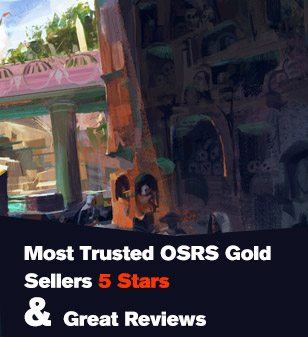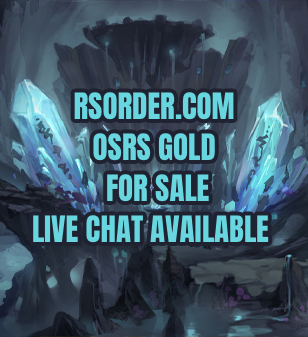Top News
-
Diablo 4 Season 10 Druid Guide: How to Level Fast with Pulverize
Oct-02-2025 PST / Diablo4 -
Lineage 2M Mage Build Guide: Free-to-Play Friendly Setup
Sep-30-2025 PST / Lineage 2M -
Learn Effective Attacking Skills in EA FC 26
Sep-30-2025 PST / FC 26 -
Path of Exile 2:Top Chronomancer Build Guide (Patch 0.3.0)
Sep-30-2025 PST / POE 2
Path of Exile Guide: How to Craft
This guide will walk you through the essentials of crafting in Path of Exile, from beginner-friendly tips to advanced techniques that experienced players use to chase mirror-tier items.
Why Crafting Matters
Crafting in PoE is more than just slapping a bonus onto an item. It allows you to:
Tailor items to your build's specific needs (resistances, damage mods, attributes).
Save currency by upgrading a decent base instead of buying a perfect item.
Chase endgame gear that's often unavailable on the trade market.
Engage with the economy, since crafted bases and influenced gear sell for huge profits.
Crafting isn't mandatory to progress, but it often becomes the difference between "good enough" and "best-in-slot."
The Basics of Crafting
At its core, crafting in PoE revolves around currency items. Unlike traditional gold-based economies, every Path of exile currency piece doubles as a crafting tool. Here are the most important ones:
Orb of Transmutation - Upgrades a normal item to a magic item.
Orb of Alteration - Rerolls the modifiers on a magic item.
Orb of Augmentation - Adds a random affix to a magic item with an open slot.
Orb of Alchemy - Upgrades a normal item to a rare item.
Chaos Orb - Rerolls all modifiers on a rare item.
Exalted Orb - Adds a new modifier to a rare item.
Divine Orb - Rerolls the values of existing modifiers.
These items form the foundation of crafting. Early on, they let you create functional gear. Later, they combine with more advanced systems.
Crafting Bench (Hideout)
One of the first steps to reliable crafting is unlocking the Crafting Bench through the Master system (unlocked by running maps and talking to masters like Einhar, Jun, etc.). The bench lets you:
Add a single crafted modifier (like +life, resistances, or damage).
Remove or replace an existing crafted mod.
Unlock recipes from various league mechanics, such as Delve, Betrayal, and Heist.
This system is powerful for filling in resistances or stats when an item is almost perfect but missing one piece. For example, if you craft boots with life, movement speed, and one resistance, you can bench-craft a second resistance to balance your defenses.
Essence Crafting
Essences are currency items that guarantee a specific modifier when used on a normal item. For example:
Essence of Greed always adds flat life.
Essence of Wrath always adds lightning damage to attacks.
Essence of Contempt always adds physical damage to attacks.
They drop from shrieking purple crystals around Wraeclast. Essences are especially good early league because they force powerful affixes on gear that you can then further upgrade.
Fossil Crafting
Introduced in the Delve league, Fossils (used with Resonators) allow targeted crafting by limiting or increasing the chances of certain modifiers. Examples:
Pristine Fossil increases the likelihood of life modifiers.
Jagged Fossil favors physical modifiers.
Bound Fossil favors minion modifiers.
Dense Fossil removes defense modifiers, improving energy shield rolls.
By combining multiple fossils in a resonator, you can filter the mod pool and make RNG more favorable. For example, using Pristine + Dense on an armor base gives a much higher chance at rolling high life and energy shield together.
Influence Crafting
Influenced items (Shaper, Elder, Crusader, Redeemer, Warlord, Hunter) have unique affix pools unavailable elsewhere. Influence crafting is a late-game system and allows chase modifiers like:
Shaper: "Gain #% of Physical Damage as Extra Elemental Damage."
Hunter: "% chance to Poison on Hit."
Crusader: "Enemies you Kill Explode, dealing #% of their Life as Physical Damage."
Crafting influenced gear typically involves Awakener's Orbs, which merge modifiers from two influenced items into one. This allows you to create powerful combinations like explode chests with extra curse mods.
Harvest Crafting
Harvest adds a deterministic element to crafting. In the Sacred Grove, players encounter seeds that grant specific crafting options such as:
"Augment an item with a Cold modifier."
"Remove a Fire modifier and add a new Fire modifier."
"Reforge an item, keeping all suffixes."
Harvest crafts are among the most powerful because they bypass RNG, letting players force specific mods onto gear. While nerfed from their original state, Harvest is still one of the most efficient ways to target-craft high-end items.
Metamods and Blocking
One advanced crafting technique is metamod crafting, available via the bench. These include:
"Cannot roll Attack Modifiers"
"Cannot roll Caster Modifiers"
"Prefixes Cannot Be Changed"
These allow you to "block" certain outcomes when rerolling an item. For example:
Craft "Prefixes Cannot Be Changed."
Use a Chaos Orb or Scouring Orb to reroll only suffixes while keeping good prefixes intact.
This technique is how mirror-tier items are made, giving control over chaotic reroll mechanics.
Beastcrafting
With Einhar's menagerie, you can capture beasts and use them for special crafts, including:
Adding mods like Aspect of the Cat/Avian/Spider.
Splitting an item into two copies (one mod on each).
Imprinting a magic item (creating a "save state" to revert if the next craft goes poorly).
Imprints are especially valuable for high-risk crafting attempts.
Fractured and Synthesized Items
From Betrayal and Synthesis mechanics:
Fractured items lock in one modifier permanently. These are prized as crafting bases since you can build around the guaranteed mod.
Synthesized items have special implicit modifiers (like increased aura effect or chance to avoid elemental ailments). Crafting around these bases opens unique possibilities.
When to Craft vs. When to Buy
One of the biggest lessons in PoE crafting is knowing when to stop. Crafting can be a massive currency sink. Sometimes it's smarter to buy an item from trade instead of endlessly rerolling.
A good rule of thumb:
Craft: If you only need one or two specific mods (like life + resists) or you enjoy the gamble.
Buy: If the item has dozens of possible affixes and you want something specific that's already available on the market. You can just go buy POE orbs to get it.
Final Thoughts
Crafting in Path of Exile is a complex, multi-layered system that evolves with each league. From basic alch-and-go gear to fossil-crafted weapons and Awakener Orb monstrosities, the system rewards experimentation, knowledge, and persistence.
For beginners, start with essence and bench crafting to plug gaps in your build. For veterans, chase influence, Harvest, and metamod techniques to make items worth mirrors. And always remember: sometimes the best craft is knowing when to stop and buy.
Recently read
-
Diablo 4 Season 10 Druid Guide: How to Level Fast with Pulverize
Oct-02-2025 PST / Diablo4 -
Lineage 2M Mage Build Guide: Free-to-Play Friendly Setup
Sep-30-2025 PST / Lineage 2M -
Learn Effective Attacking Skills in EA FC 26
Sep-30-2025 PST / FC 26 -
Path of Exile 2:Top Chronomancer Build Guide (Patch 0.3.0)
Sep-30-2025 PST / POE 2


